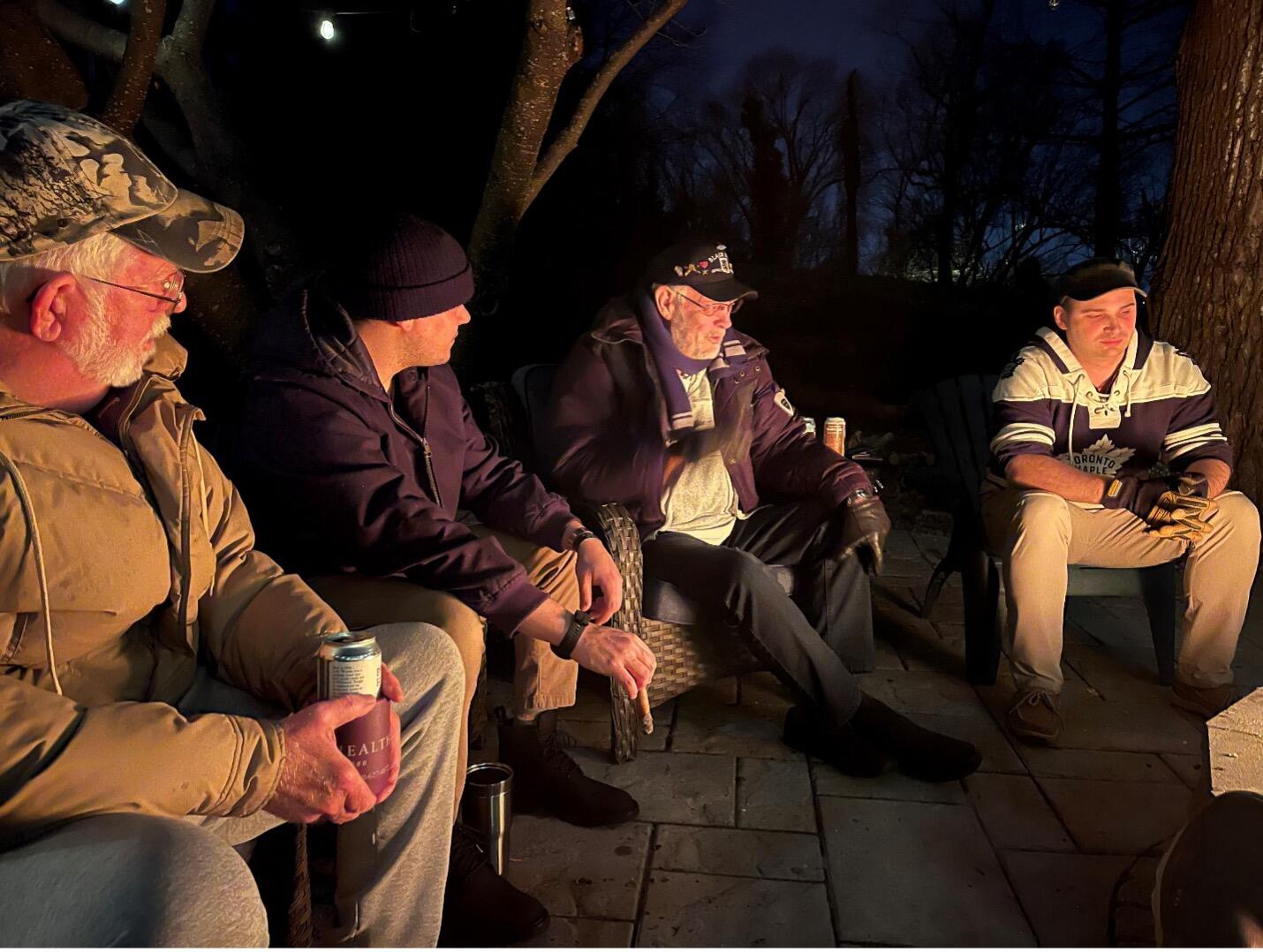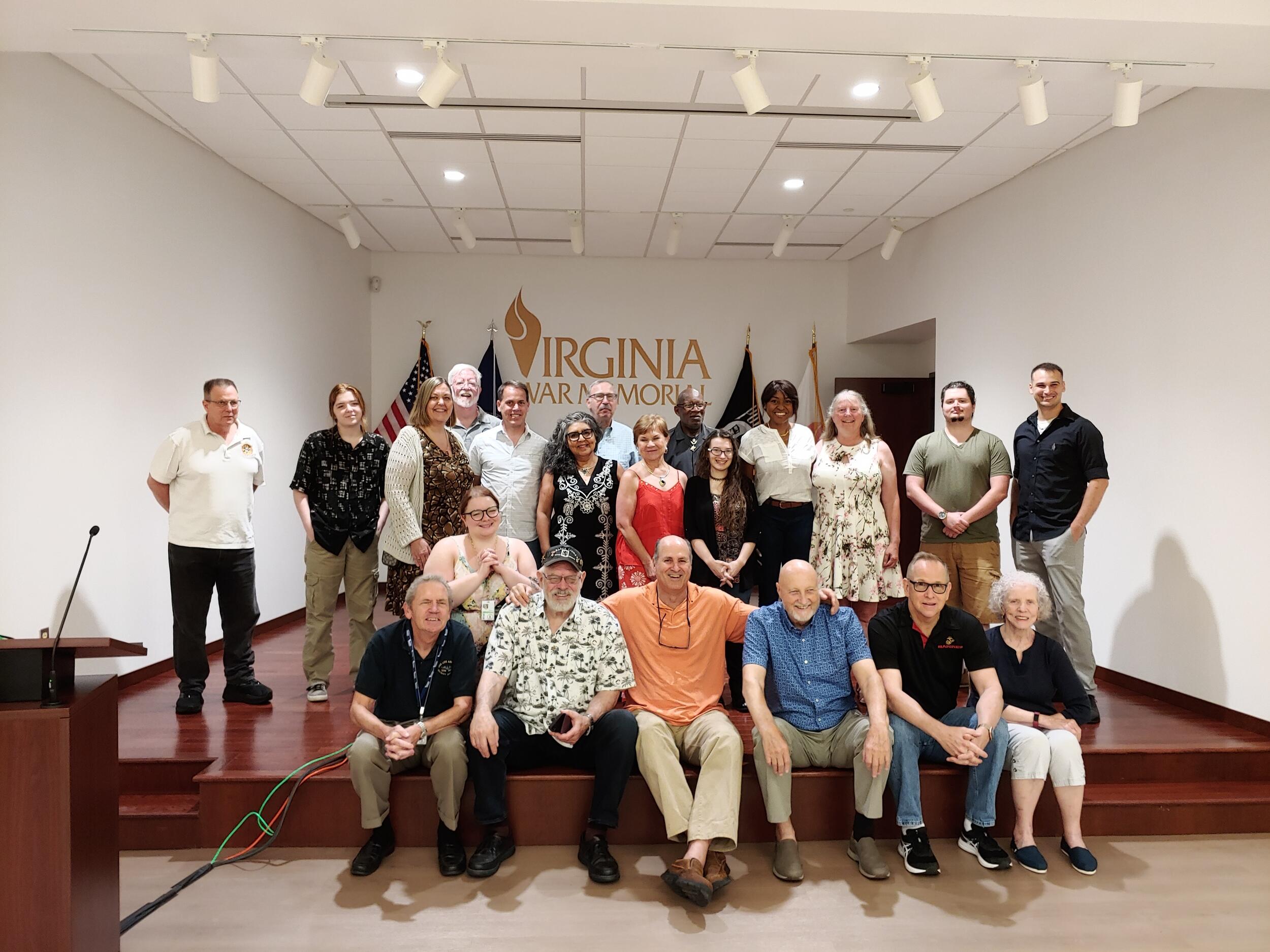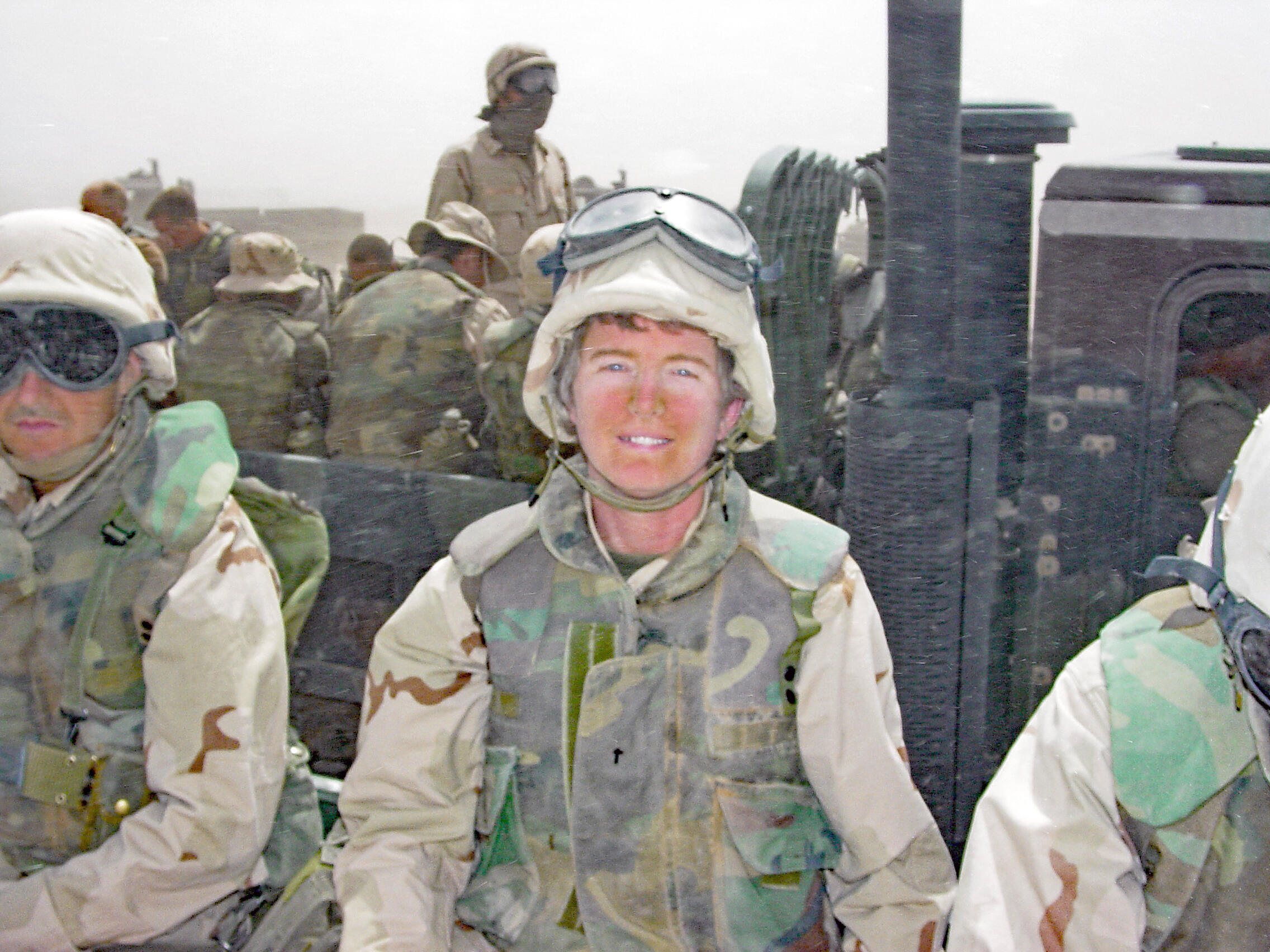
May 10, 2024
For a decade, the Mighty Pen Project has served veterans through writing
Led by VCU instructor David L. Robbins, the storytelling initiative through the Virginia War Memorial Foundation has fostered creativity, historical perspective and personal healing.
Share this story
In 2014, novelist and Virginia Commonwealth University professor David L. Robbins read a newspaper article that set him on a new path.
The article highlighted a weekend writing retreat for veterans hosted by a university in the Northeast. To Robbins, a New York Times bestselling author and advanced creative writing instructor in VCU’s School of the Arts, such a truncated class seemed like a slight – both to writing as an art form and to the veterans seeking to learn it.
“It’s disrespectful to the teaching of writing that you could give anybody any useful practicum or information in a weekend,” he said. “That’s like saying, ‘Oh, let’s learn jazz piano in a weekend.’ Then I thought it was disrespectful to veterans [who’d] put on their country’s uniform, and they [only] get a weekend.”
Robbins felt so strongly that he approached the Virginia War Memorial Foundation with the idea of setting up a more comprehensive writing program for veterans, one that could offer real training and the opportunity to collaborate in a workshop environment. From there, the Mighty Pen Project was born, and for a decade, it has offered a creative – and cathartic – outlet for its participants.
The program, which Robbins first launched as a nonprofit but is now offered through the foundation, is an intensive writing workshop that gives veterans the tools and community to take memories from their time in service and commit them to paper, creating a written narrative – often of traumatic circumstances. Stories produced in the class, several of which are archived on VCU Scholars Compass, center around military service and the feelings and lessons associated with it.
“For a lot of the men and women in the program, it’s good to be able to just put pen to paper and compose your thoughts,” said Might Pen Project participant Charlie Williamson, an Army veteran who served in Iraq.
The classes, which are offered three times a year, are free to military veterans and their spouses, and take place over 12 virtual sessions. Some students join with a bit of writing experience, while others are relatively new to the study and practice of storytelling. Every class, the group looks at a handful of stories written by their peers. In a workshop format led by Robbins, they discuss storytelling technique and offer constructive criticism.

In one Mighty Pen story, “Enouement,” Miko Yoshida writes about the realization by a Marine that the thing he will always know best in life is how to handle a rifle. Another story, “The Sphere,” written by Williamson, describes his experience as a sniper at war caught between the rules of engagement and saving his squadron. Both “Enouement” and “The Sphere” were recognized by VCU Publishing at its annual awards program, which recognizes scholarship and creativity from its journal partners.
Army veteran Dustin Dunbar, who served in Afghanistan, is currently taking his fourth Mighty Pen workshop. As his confidence in writing has grown, he said, so has his confidence in tackling the “tougher subjects that happened” during his military service.
“[I’m writing] a little bit more emotionally weighted stories [with] more nuanced perspectives and trying to figure out what it is I’m trying to say,” Dunbar said. “That’s what I was hoping I’d get out of it, and I’ve gotten more out of it than I expected.”
Though the stories can deal with difficult subject matter, “the words healing and catharsis never come up” specifically, Robbins said.
“This is a writing workshop. I would never tell [anyone] what to write. ... I only provide a likeminded community, some rigor, and some training and structure to learn the tactics and techniques of storytelling and good writing for the purposes of being a storyteller.” Through the sharing of stories and thoughts, healing and catharsis tend to happen naturally.
“What’s been great about it is in the end, you actually get [a kind of] therapy from it,” Dunbar said. “Just from telling a story, being able to tell a good story, and being able to have that story connect with other people –that’s where the therapy comes in. It’s not upfront and it’s more subtle, but that’s honestly what I’ve really appreciated about it.”
Laura Bender, who served as a Navy and Marine chaplain, praised the supportive atmosphere that Robbins creates in the Mighty Pen Project.
“David is a terrific instructor, but he’s also a very kind man,” she said. “He really approaches the telling of veterans’ stories of service so well that he helps us tell those stories when, ordinarily, veterans don’t necessarily feel comfortable – [because] some of the stories are very difficult to remember and relate.”

It also helps to be surrounded by those who have similar stories to share, Bender added. “You don’t have to explain things to people who have had similar experiences. And some things go beyond explanation.”
In the decade since the project launched, it has continued to expand. The Mighty Pen has added “War in Pieces,” a festival of veteran-authored one-act plays, as well as the Mighty Pen Podcast, which premiered in January this year. The podcast shares select stories and features dramatic readings by professional actors plus interviews with the veteran writers. Additionally, the Virginia War Memorial Foundation releases the Mighty Pen Project Journal, an annual publication featuring curated works from the past year’s classes.
Through the process of writing their own stories, veterans also are documenting history.
“We’re cataloging these stories before the people who lived them aren’t here to tell them,” Robbins said. “It’s important in Virginia but also nationally and worldwide to capture these stories for historical and human purposes.”
“There are stories that should not be forgotten,” Bender added. “If I don’t tell that story, it will be as if it never happened.”
Subscribe to VCU News
Subscribe to VCU News at newsletter.vcu.edu and receive a selection of stories, videos, photos, news clips and event listings in your inbox.









